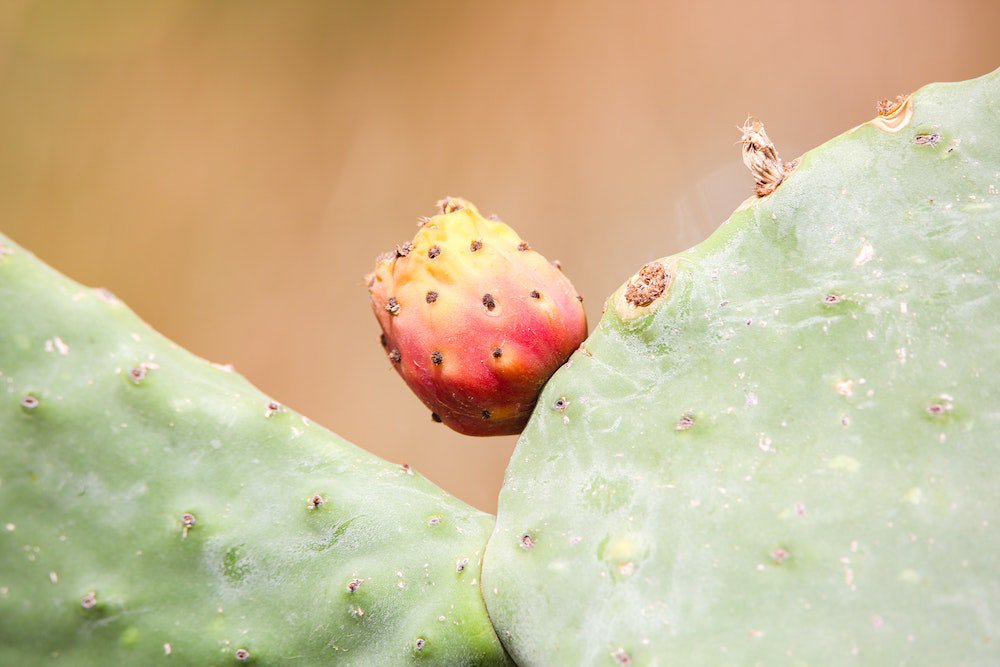Is Cactus Leather Sustainable?
Cactus leather is becoming an increasingly popular and eco-friendly sustainable choice for many brands across a variety of industries. This innovative vegan leather alternative is being used by home furniture companies, automotive manufacturers, organic product creators, sports equipment companies, and perhaps most notably, within the fashion industry itself. Cactus leather serves as a cruelty-free, animal-friendly substitute for traditional leather materials.
Cactus leather is derived from the broad, flat paddles of the prickly pear cactus, a plant native to the arid regions of the Western Hemisphere. Prickly pear cacti grow well without the need for artificial irrigation, pesticides, or other unnatural interventions, allowing them to be harvested in a low-impact, sustainable manner. Like most cacti, the prickly pear is drought-resistant and thrives in hot, desert climates. The plant also bears an edible fruit and provides paddles that serve as a vegetable in local cuisines. But despite these beneficial ecological qualities, is cactus leather sustainable?
See also: The Future of Leather: Cactus, Mycelium, and Pineapple Leaves.
To produce cactus leather, the mature paddles of the prickly pear cactus must first be harvested. The paddles are then processed into a crunchy powder or mulch, which is dried in the naturally abundant desert sunlight for up to three days. Once fully dried, the mulch can be separated into useful fibers and a leftover dried plant mulch. The fibers are then combined with bio-polyurethane, a formula derived partly from natural materials that is said to be 68% organic in nature. Finally, the material is colored using non-toxic, environmentally-friendly dyes and chemicals.
The cactus leather currently being produced by companies like Desserto is marketed as completely cruelty-free, vegan, and eco-friendly. The material is USDA Certified Organic and made using natural bio-resins extracted from the cactus fibers themselves. These bio-resins contain fibrous proteins that, when processed, can mimic the texture and durability of true animal leather. Along with organic certification, the cactus leather is colored using only certified, non-toxic plant-based pigments.
Desserto was founded by Mexican entrepreneurs Marte Cazarez and Adrian Lopez Velarde, who left careers in the established apparel industry to strike out on their own. Their goal was to replace environmentally-taxing animal leather in the fashion world with superior quality, sustainable plant-based alternatives. The pair aimed to create cactus leather that was vegan, cruelty-free, environmentally responsible, and made entirely in Mexico.
True to these founding principles, Desserto’s cactus leather products are bio-based, carbon neutral, and produced sustainably in Mexico. The company utilizes recycled materials in its production process and aims to offset its environmental impact through partnerships with reforestation programs. Desserto also attempts to ethically source all input materials domestically within Mexico.
By making use of abundant native species requiring little to no agricultural cultivation, the production of cactus leather avoids many of the ecological downsides plaguing both animal and synthetic leathers. However, some questions remain regarding the new material’s sustainability credentials. Critics point out the reliance on chemicals and compounds like bio-polyurethane in processing the raw organic cactus paddles into usable leather. They also highlight the environmental impacts of international shipping once the finished cactus leather is exported globally to production facilities and retailers overseas.
Proponents counter that while no material is perfect, cactus leather represents a sizable improvement over current leather alternatives from an ecological perspective. As processing techniques improve over time, the sustainability profile of cactus leather will only continue to advance. Compared to other plant-based vegan leathers in development today, companies like Desserto already utilize more natural, locally sourced raw materials that are produced ethically and eco-consciously.
This vegan leather is used in a variety of industries, including home furniture, automotive, organic products, and even sports equipment. It is also used in the fashion industry. Cactus leather is a great vegan alternative to animal leather and is a cruelty-free product.
Cactus leather is made from prickly pear cactus, which is a native plant to the Western Hemisphere. The cactus grows without needing artificial irrigation or pesticides. Like most cacti, it’s drought-tolerant. It also bears edible paddles and leaves, but is cactus leather sustainable?
The cactus is harvested in its mature state, and then it’s processed into a powder. It’s dried in the sun for three days. Once it’s dried, the fibers are separated from the dried mulch. It’s then mixed with bio-polyurethane, a bio-based formula that’s said to be 68% natural. Then it’s colored with non-toxic chemicals.
The cactus leather that’s being produced by Desserto is cruelty-free and eco-friendly. It’s also certified organic as it’s produced with bio-resin, which is produced by extracting the proteins and fibers from the cactus and colored with certified pigments.
Their products are bio-based, eco-friendly, and made in Mexico. They also use recycled materials.










